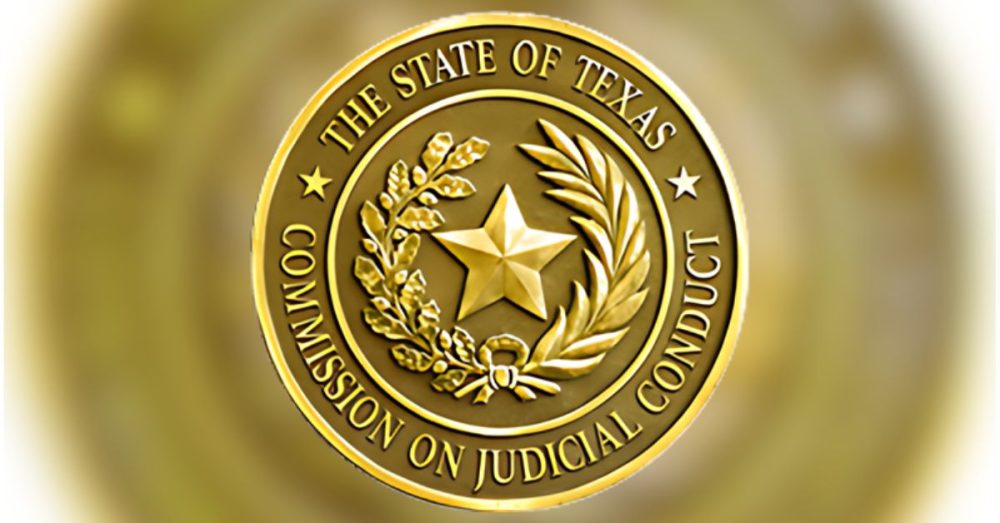The State Commission on Judicial Conduct has suddenly found a missing judicial complaint and opted to provide no further explanation.
“So you had it for four months but you never entered it. You never sent it to me,” complainant and election integrity activist Ian Camacho told The Dallas Express about an elections complaint he had filed with the State Commission on Judicial Conduct (SCJC).
“So, it’s like they literally were sitting on it,” he added. The complaint was filed against Loving County Judge Skeet Lee Jones.
Jones had been indicted on charges of cattle rustling in 2023 and was immediately suspended, as DX previously reported. However, documents Camacho shared with DX during the production of a previous story appeared to indicate that Jones continued to sign off on official documents, including some that authorized primary races in his county, potentially in violation of the law.
Camacho sent the same documentation to the SCJC four months ago, in April 2024. He sent the documents along with a complaint via certified mail to the SCJC’s post office box. The envelope was received and signed for. Although post office workers often sign for certified mail when it is sent to a post office box, the certification would indicate that the mail at least made it to SCJC’s mail pile, despite whatever might have happened to it after that point.
Subsequently, no representatives from the institution responded, acknowledged the documentation, or approached Camacho for more information. By late July, when Camacho followed up, he was told by a secretary that the agency had never received the complaint, DX reported.
Then, Camacho says that Executive Director Jacqueline Habersham told him the agency had already handled the case. However, she appeared to be referring to a previous complaint Camacho had filed regarding actions from several years prior.
After a winding exchange that exposed an apparent inability of SCJC’s staff to assign documents consistent case numbers, Camacho and Habersham’s exchange ended on less than pleasant terms.
“She was quite dismissive and belittling and rude. And I just don’t think that they like having their feet held to the fire,” Camacho said. “I’m not the one who screwed up.”
Eventually, SCJC staff scanned a copy of the envelope in which the first complaint had come in and emailed it to Camacho. However, it remained unclear whether the agency still had the envelope’s contents. Earlier in August, as Camacho was sending a second notarized copy of the complaint, he finally received a letter acknowledging receipt of the first one.
No explanation has been offered for the delay in processing the complaint. Camacho does not find the tacit explanation of “no one noticed it for four months, but oops, we suddenly found it” adequate.
The SCJC has twice previously told The Dallas Express that they will not comment on Jones’ case or what happened to the complaint. Habersham responded with an email saying, “Article V, Section 1-a(10) of the Texas Constitution and Section 33.032 [of the Texas Government Code] strictly prohibits this agency from confirming whether a complaint has been received or an investigation is pending against any Texas judge. Therefore, we have no comment with respect to your inquiry.”
The text of the relevant section of the Texas constitution reads, ”(10) All papers filed with and proceedings before the Commission or a Master shall be confidential unless otherwise provided by law, and the filing of papers with, and the giving of testimony before the Commission or a Master shall be privileged unless otherwise provided by law.”
Yet, there is a caveat:
“However, the Commission may issue a public statement through its executive director or its Chairman at any time during any of its proceedings under this Section when sources other than the Commission cause notoriety concerning a Judge or the Commission itself and the Commission determines that the best interests of a Judge or of the public will be served by issuing the statement.”
Section 33.032 of the Texas Government Code states, “If the commission issues an order suspending a judge who has been indicted for a criminal offense, the order, any withdrawal of the order, and all records and proceedings related to the suspension shall be public.”
Camacho is a former election judge and a director of research at Look Ahead America. He gives frequent accounts of his ongoing efforts to secure elections in Texas and other places on his Substack. Camacho can be heard talking about this case and others in longer form on the Cowtown Caller podcast.


